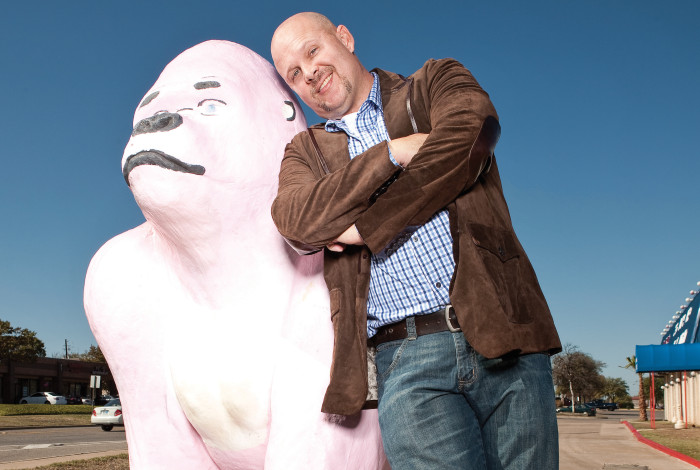There was a time in Jason Howell’s life when he assumed he would do what generations before him had: work on his family’s cattle ranch. A native Texan, Howell loved growing up on a ranch and got his agriculture management degree at Texas A&M. But today, he finds himself on a much different path—although one he is also passionate about.
Howell’s enthusiasm as he talks about SoberHood, where he is executive director, is unmistakable. A self-described social entrepreneur, Howell worked in the pharmaceutical industry specializing in mental health, worked as a massage therapist, and started some small business ventures, when, in 2008, he asked himself what it was he really wanted to be doing.
That’s when Alex Sanchez came along, wanting to discuss sober houses. Howell immediately turned to his health care contacts, and within a few months the organi- zation was born.
SoberHood started as a sober home, with a particular focus on helping gay men struggling with addiction. The house, known as the Scott Daniel House, is the only gay sober home in Texas, and one of only five in the nation.
Since the opening of the home in 2010, SoberHood has transitioned from housing provider to a housing support organization. The organization launched the Texas Recovery Oriented Housing Network as a way to address needs at a higher level and have a larger impact on more lives, Howell said. SoberHood is also a charter member of the National Association of Recovery Residences, whose affiliates house about 30,000 people each year. SoberHood’s involvement in those organizations reflects a larger, na- tional movement away from treatment centers and toward recovery and support services as a way to combat sub- stance abuse.
 Addiction recovery is a difficult area that many medical and psychological experts are just now beginning to view in a very different way, he added. There’s been a shift from seeing addiction as an acute illness to understanding it as a chronic illness. The LGBT population is a particularly underserved area and comes with its own set of challenges, Howell said.
Addiction recovery is a difficult area that many medical and psychological experts are just now beginning to view in a very different way, he added. There’s been a shift from seeing addiction as an acute illness to understanding it as a chronic illness. The LGBT population is a particularly underserved area and comes with its own set of challenges, Howell said.
“Gay men often present with a quadruple case—substance abuse issues, process addictions, eating disorders, and other mental health illnesses like depression. Then there are also higher rates of major medical issues like HIV. So, how do you support an individual through all that? That was the challenge presented to us and the reason we specifically looked at opening a gay home.”
Howell described substance abuse as the 500-pound pink gorilla in the gay community: “It’s a huge, stinking monster that nobody wants to talk about.”
Many gay men, he noted, have faced rejection from their biological families and have found new families among friends in the gay community. But sometimes that community and its unconditional love goes hand in hand with substance abuse, which makes the path to recovery that much harder.
“For you to define recovery, you have to leave that family you created and find a new family, and that’s a tough psychological thing to get your head around,” Howell said. “It’s a scary thought to give up that family that loves them.”
It’s something he relates to on a visceral level. Growing up gay in South Texas, which was known as a drug trafficking center, Howell saw many of his friends battle drug addiction. Some have even died from addiction-related incidents. “The death certificate doesn’t say death by cocaine, it says death by heart attack or death by suicide,” he said. “My eyes were opened. So when a solution showed up, I wanted to make a difference.”
And the more he’s seen the organization’s work in action, the more hopeful he feels that recovery programs can produce miraculous results. Even for some people whose cases might have been considered “hopeless”—like the man whose mother started pimping him out at age 12 for crack. That individual is now in a long-term relationship, em- ployed and thriving, Howell said. For him, that’s proof that support structures will be a critical part in helping those who struggle with substance abuse.
Howell also hopes that the local gay community starts to include self-care and respect in its pride movement.
“It’s great we’re getting civil rights, but at the same time we need to take a look at healing ourselves from within. Wellness doesn’t mean going to the gym for three hours a day…it’s how we can truly be healthy, happy, well beings and changing what it means to be gay for the young gay individuals coming into our community. They need to be able to see past the bar, to see what it means to be a successful, happy, gay person.”




































